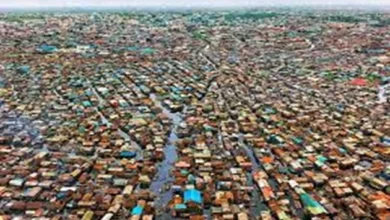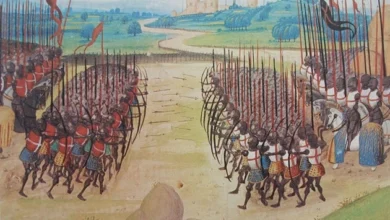Ethnic groups, oil, wars: the truth behind Biafra conflict (1966-1970)
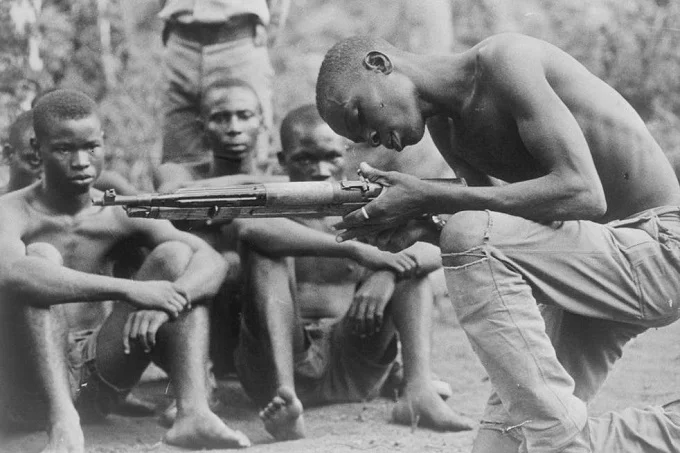
The analysis of the wars that have marked the internal history of Nigeria continues. This article will discuss the Nigerian civil war, also known as the Biafra war, the first real ethnic conflict that hit Nigeria after seven years of independence.
The Biafra war is considered a tragedy of enormous proportions, which has caused almost 3 million deaths among the victims of war and hunger. The images of the Igbo population, the ethnic group that inhabits the Biafra region, especially of malnourished children, caused a sensation in every part of the world, changing the perception of humanitarian crises; the conflict in Biafra was the starting point for a new generation of humanitarian organizations, which have broken the rule of non-interference by civil and non-profit organizations in internal problems of a sovereign state. The foundation of Medecins sans Frontieres in 1971 is the most famous example of Biafra’s shock to humanitarian organizations.
The Biafra War lasted approximately four years, from 1966 to 1970, during which the south-eastern province of Nigeria, populated by the Igbo ethnic group, attempted to secede from the central state, which triggered an immediate response from the Nigerian army.
On 15 January 1966, the part of the Nigerian army of Igbo ethnicity, commanded by General Johnson Aguiyi-Ironsi, took power through a coup d’état, motivated by the alleged electoral fraud that had upset the previous year’s elections. The result of the elections had favored the ethnic groups of northern Nigeria to the detriment of the southern regions, an area where most of Nigeria’s natural resources are still concentrated, especially oil and gas.
The presence of very rich oil fields in the Niger Delta area, the heart of the region, was certainly the real trigger for the conflict. In fact, on 29 July 1966, the “northern” army, made up of soldiers mainly of Yoruba and Hausa ethnic groups, organized a counter-coup giving power to Colonel Yakubu Gowon, massacring the Igbo Christian minorities of the north and completely excluding them from the management of the been the Igbo of Biafra.
The latter, worried about the possibility of losing all oil revenues due to the interference of ethnic groups from the north, declared their independence from Nigeria on 30 May 1967, founding the Republic of Biafra, headed by Colonel Odunegwu Ojukwu.
The new nation will only be officially recognized by Gabon, Haiti, the Ivory Coast, Zambia, and Tanzania. The reasons that Ojukwu gave to the international press for the declaration of independence centered on the electoral fraud and the violence perpetrated against the people of Biafra.
Nigeria first tried to establish a timid diplomatic dialogue, but given the poor results, on 6 July 1967, it decided to invade the secessionist enclave. On 12 July, the government army took the city of Garkem and two days later entered Nsukka. Biafra’s response was not long in coming, and the counteroffensive was successful, bringing Ojukwu’s troops to 200 km from Lagos, the Nigerian capital at the time.
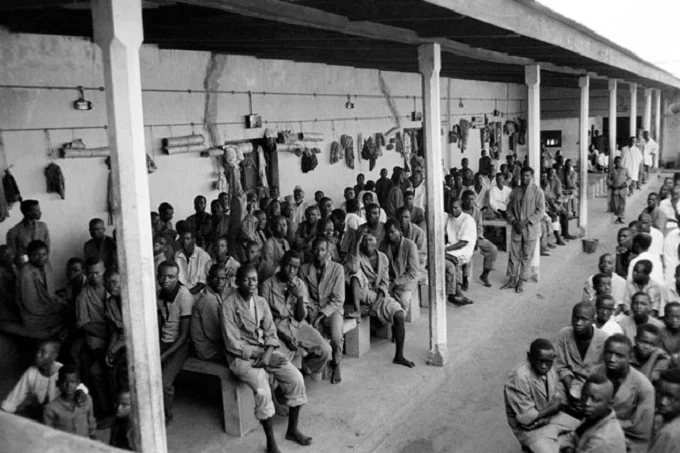
The Nigerian government, feeling cornered, responded by sharpening the violence against the Igbo: after regaining the lost territories, a long siege began, putting in place a naval, land, and air economic blockade.
Thus, Biafra was completely excluded from the Nigerian federation without being able to access the proceeds of oil extraction, which continued regardless of the ongoing conflict or any type of supplies and basic necessities.
The protracted blockade, coupled with Nigerian raids on Biafra farms, led to a humanitarian disaster, with countless starvation deaths among Igbo civilians. Images of severely malnourished children circulated around the world, and Biafran leaders began to ask foreign countries for help in an attempt to put an end to what they called “a genuine genocide”.
The Nigerian government tried in every way to resolve the bitter conflict in Biafra in a short time but failed due to the various logistical problems that arose within the self-proclaimed state, where the Igbo continued strenuously the defense of their territories also thanks to the help of foreign volunteers.
International support for Biafra was not only on the part of humanitarian organizations, in fact, for example, Portugal, at the time the last state to still have colonies in Africa, played a fundamental role in the defense of the state of Biafra, using the colony of Sao Tome and Principe as a base for the protection of the high Biafrian offices and for the shipment of funds, basic necessities and all sorts of aid.
Despite Biafra’s support, the war was destined to be resolved in favor of the Nigerian government: the economic blockade implemented by Nigeria was crucial in ending the war. Exhausted by malnutrition, Biafra was unable to block the final advance of the Nigerian army in 1969. Federal troops reached the heart of the state, managing to conquer the most important cities, including Port Harcourt, Owerri, Uli, and Umuahia.
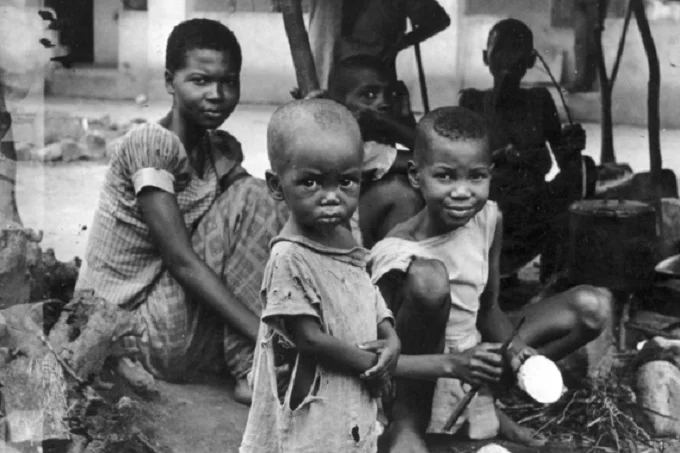
On 13 January 1970, the last city of Biafra, Amichi, also falls. In full military and humanitarian collapse, Ojukwu fled into exile in the Ivory Coast, leaving his lieutenant Philip Effiong to deal with the surrender. The Republic of Biafra had such a short life, ending its experience of self-government on 15 January 1970.
In retaliation against the Igbo, the federal government applied a series of restrictive measures in the immediate post-war period, limiting access to current accounts and giving rise to severe discrimination in public and often private employment.
At the same time, the administration of some of the cities with a strong Igbo presence was entrusted to rival ethnic groups such as the Ijaw and Ikwerre; not to mention that the name Biafra has been deleted from all geographical maps of Nigeria and what was an independent state for three years is now a territory divided into nine federated states of the Republic of Nigeria (Enugu, Ebonyi, Cross Rivers, Abia, Anambra, Imo, Rivers, Bayelsa, Akwa Ibom). As a result of all this, in the early 1970s, the Igbo became one of the poorest ethnic groups in all of Nigeria.
The issues that were at the basis of the Biafra war – the interests deriving from the rich oil fields of the region – still appear to be unresolved today. Indeed it is to the attention of the international community for what is already configured as the conflict of the Niger delta, where even today the many drilling centers are hit daily by acts of sabotage and bunkering by the peoples who claim the rights to their lands of origin, now battered by oil exploitation.
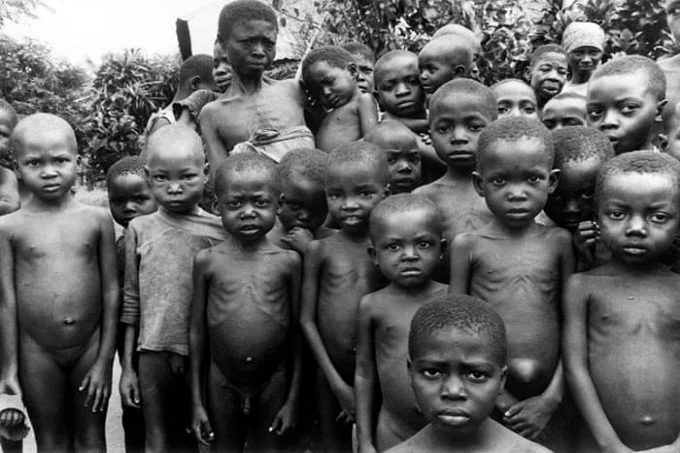
Biafra is gradually trying to leave the bad past behind, even if the scars do not seem completely healed: problems still persist with regard to malnutrition and health, many people still live below the poverty line, and the Igbo people are losing more and more ground arable because of the oil companies that are increasingly expanding their monopoly on the area.
Despite the passing of the years, popular dissatisfaction remains, and resentment towards the central government increases more and more.


